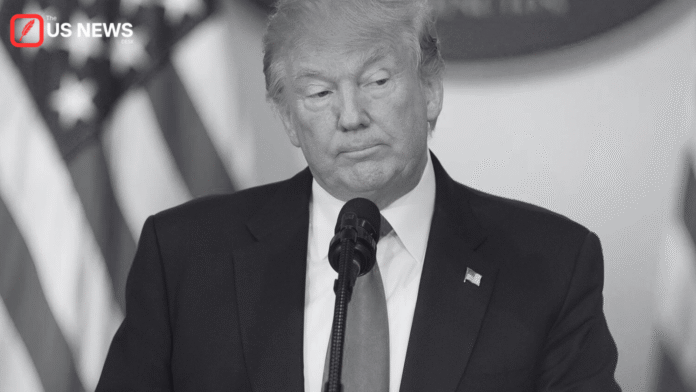In the digital age, rumors spread faster than facts. Over the past week, an unusual wave of speculation surged online under the question: “Is Trump dead?” The former president, now serving again as the nation’s leader, became the subject of viral posts claiming everything from sudden health scares to secret cover-ups. While swiftly debunked, the rumors reveal a deeper truth about American politics today—how conspiracy theories, misinformation, and the attention economy shape public trust and governance.
The Anatomy of a Political Rumor
Rumors about a sitting president’s health are not new in American history. Franklin D. Roosevelt’s paralysis, Dwight Eisenhower’s heart attack, and Ronald Reagan’s shooting were all moments where speculation tested the limits of transparency. But in 2025, the speed and scale are unprecedented.
Platforms such as X (formerly Twitter), Facebook, and TikTok turned an unverified whisper into a trending topic within hours. Hashtags like #TrumpDead and #WhiteHouseSilence surged, creating a cycle of clicks, retweets, and algorithmic boosts. Many posts lacked evidence but thrived in an environment where shock value and virality often outweigh verification.
Why Conspiracy Theories Thrive in the Attention Economy
The “Is Trump Dead?” narrative is less about truth and more about attention. Online ecosystems reward engagement, not accuracy. A dramatic rumor sparks curiosity, drives ad revenue, and gives fringe voices a platform.
Conspiracy theories thrive in this economy because they offer clear villains, dramatic stakes, and simplified answers to complex issues. For Trump supporters, false rumors of his death can galvanize loyalty and deepen distrust toward mainstream outlets. For his opponents, they can serve as fuel for speculation about the fragility of his leadership. Either way, attention becomes currency.
The Role of Media Literacy
What these rumors highlight most urgently is America’s media literacy gap. Many readers lack the tools to distinguish between fact-checked reporting and content designed purely for clicks. Studies from the Pew Research Center have shown that misinformation exposure is highest among groups that rely on social media as their primary news source.
Educational campaigns that promote critical thinking and digital verification skills are crucial. Without them, society risks spiraling into a permanent state of suspicion where every headline is doubted, and every fact is up for debate.
Governance and the Trust Deficit
Misinformation is not just a cultural problem—it is a governance issue. Leaders must balance transparency with national security and privacy. The White House faced pressure to release live footage of Trump at public events to counter the death rumors, underscoring how deeply public trust has eroded.
This erosion has tangible effects: policy announcements get overshadowed by online noise, and citizens spend more time parsing viral rumors than engaging with real legislative debates. In such an environment, democracy becomes reactive rather than proactive.
The Broader Implications for American Politics
The Trump death rumors are less about one man and more about a nation caught between truth and spectacle. They underscore three larger trends:
- Hyper-partisan echo chambers where citizens rarely encounter perspectives outside their preferred narrative.
- Algorithm-driven virality that prioritizes emotional reaction over factual reporting.
- An unstable trust foundation between government, media, and the public.
Unless these dynamics are addressed, future elections, crises, and even health updates could be consumed by rumor wars rather than informed debate.
Conclusion
The fleeting question—“Is Trump dead?”—was answered quickly: no. Yet the fact that it trended so powerfully reveals something more enduring about our political moment. America’s information age is not just about access to news but about navigating the noise that surrounds it.
If democracy is to remain resilient, citizens, leaders, and platforms alike must confront the attention economy head-on. Only then can trust be rebuilt in an era where a rumor can outpace reality in minutes.




